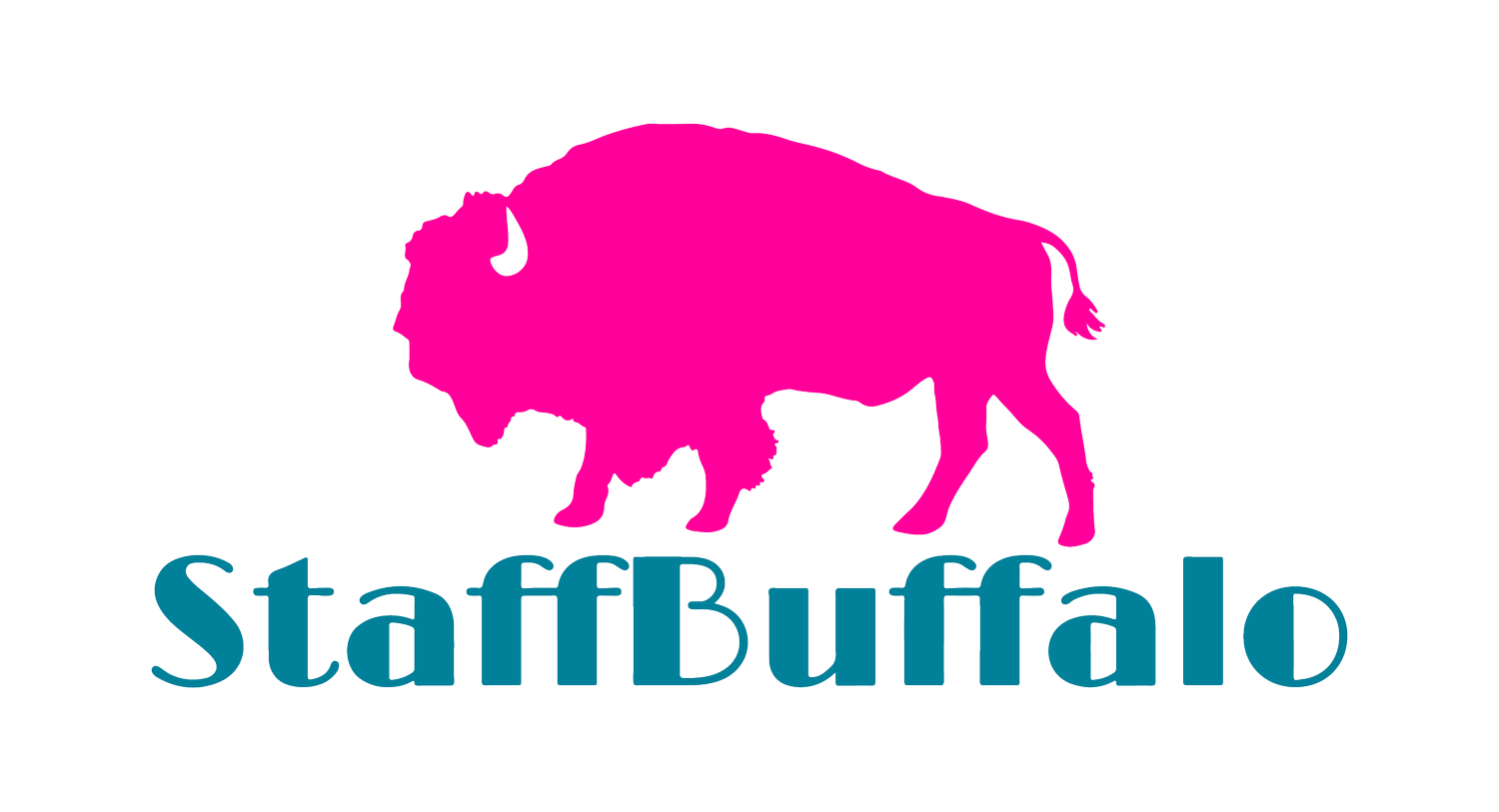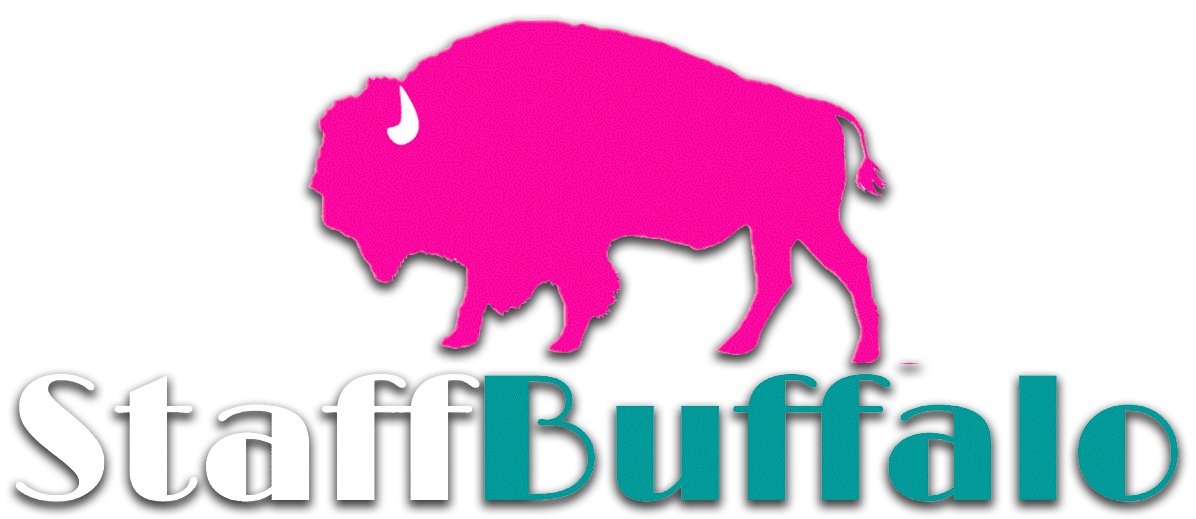
Resources for Hiring
The dos and don’ts of the interview process
-
Create an accurate and in-depth job description to help outline your ideal candidate.
Take your time with this, so that you have an accurate idea of what you are hiring for and others know what you are hiring for.
Create a Recruiting Plan: Identify where these candidates will see your posting, post the job, and network with the right individuals.
Knowing where to start and mapping out how to get to the right candidate is essential. You can always adjust your plan throughout the process, but being able to follow the plan and not miss significant steps is important!
Contact a Recruiting agency that can accommodate Temporary Staffing, if you need someone in the seat ASAP.
Temporary candidates can turn into the permanent role, but at the very least, they can help you fill in the gap, so that you don’t rush through the recruiting process and choose the wrong long-term fit. Temporary candidates should not currently be working, so that they can start immediately.
Source a Recruiting agency that specializes in your need for “Passive candidates” to expand your staffing reach.
Active candidates are those candidates applying to your position and other positions online. You typically will have to wade through a lot of Active candidates in order to find one that is a fit for your needs.
Passive candidates are much tougher to find and are usually a better fit for your specific needs because they were sought out. Recruiters are paid to have databases full of Active and Passive candidates and will be able to match the Company’s wants/needs with the wants/needs of the candidate.
Check out social media profiles of the top candidates that you want to interview.
Checking out the social media profiles in advance will save you time if you find the candidate’s posting to be unsavory. If you do not like what you see, you do not want them representing your company.
Conduct a quick 5 minute phone screen: Ask preliminary questions that are “non-negotiables” or “must haves,” so that you don’t waste your valuable time.
Great starter suggestions: “Why are you looking to leave your current company?” “Why did you leave your previous roles?” “What is your current compensation?” “What compensation are you targeting in your next role?” “What would you like your typical commute to be?”
Non-Negotiables: Ask about technologies, specific experience, certifications, etc that will impact your decision on the individual that is a fit for this role. “Are you open to travel?” “Are you open to overtime?” If so, “What is your max?”
-
Ask questions that impact you and your business and that result in answers that will help you make your decision.
There is no need to prepare 6 pages of questions, but you will want a few formal questions that will help you make your decision. The rest of the time should be an open dialog where you can get to know the candidates.
You do not want to just rattle off pre-determined questions. If you are caught up in the pre-determined questions, you won’t listen to the candidate’s responses and you may miss an opportunity to ask meaningful follow up questions.
Ask questions that touch on the candidate’s soft skills: “Tell me about a time you did not get along with a coworker and how you resolved it” “Tell me about the time you implemented new systems?” “What problems did you run into?” “What was the outcome?”
Go through the candidate’s resume from the oldest to most recent job and ask them the reason why they left each position, while verifying the candidate’s employment dates.
This is a great way to see if they have a reoccurring theme in their job changes. For example, if the only reason that the candidate continues to change jobs is for more money – RUN – they will not be a long-term fit! On the other hand, if job changes are related to a spouse’s military service and they are settling in your area, this is a very positive reason for job changes!
Ask open-ended questions to keep the candidate talking.
Avoid questions that can be answered by simply stating yes/no. If the candidate gives a one word answer, dig deeper and ask them to expand on their response.
Open-ended questions dig beneath a candidate’s initial, pre-planned answers to find out what they really did in previous positions: “How did you do that?” “Why so?” “Please tell me how you made that happen?” “What were the most important steps that you took to make that happen?”
Describe your business and what you are looking for in this role and ask the candidate why they think they would be a good fit.
This is a great tool to figure out if the candidate has been listening and for the candidate to “sell themselves” to you. If the candidate cannot respond, they most likely are not the right fit.
Ask if the candidate has any questions for you.
Remember, the candidate is taking their time to interview and will want to learn more about the position and your company.
If the candidate does not have any questions to ask, this could be a red flag. Intelligent interview questions to the employer are very important and will give you insight into what the candidate is thinking/looking for out of the opportunity.
If the candidate continues to ask about hours or brings up money early in the process it will raise crucial red flags.
-
Call References and ask specific questions related to how the candidate would perform in this role.
Most individuals will never give a “bad” reference because they do not want to be legally liable if the candidate does not receive the offer. Because of this, some references may only verify dates and titles, so try to read through the lines.
My favorite reference question: “Would you hire the candidate again?” This will give you substantial insight into the candidate’s work ethic and professional relationships.
Take note on if you received a “Thank You” email from the candidate after the interview.
This will demonstrate their manners and respect for other people’s time. It is a little bit old-fashioned, but will tell you a lot!
After the position is filled, email the candidates that you engaged in the interview process to let them know that they did not get the role and that you appreciate their time.
This is important to save yourself from all of the follow up calls and emails from candidates that you were interviewing.
Simply BCC the candidates thanking them for their time and letting them know that the role was not the right fit for them, but you will keep them in mind for future opportunities that may arise.
-
Don’t forget to write down quick notes on the candidate’s resume for future reference.
You will be meeting many people throughout the process. Take note of discussion points that interest you and are applicable, so that you remember each candidate.
Don’t ask leading questions where the candidate can answer based on the way you asked them.
Some people are great at mimicking and will base their answers on how a question is asked.
“Our company believes in giving back to the community and volunteering. Do you like to volunteer?”
Instead of “Would you like to work at a small company?” ask “What size company would you prefer?”
Don’t forget that the interview process is an opportunity for the candidate to interview you and your company just as much as you are interviewing them.
Put your best foot forward and talk about the positives and challenges of your company to make sure you are on the same page.
This is the time to see if you are a match. Do not withhold information that you deem important and that may sway a person’s decision. However, do not expose confidential information.
Don’t have too many people in the interview and don’t bring the candidate back for multiple interviews, if you can schedule the decision makers back-to-back.
Too many people in the interview: for shy individuals, panel interviews are extremely difficult. The candidate does not know where to look when they answer questions, it is tough to engage everyone in the room, and it is difficult to get to know the interviewers on a more personal level.
Multiple interviews: You want to respect people’s time during the interview process. Employed individuals have to take time off of work and make up excuses to interview with you, so do not put their jobs in jeopardy by bringing them in for an excessive amount of interviews.
If the candidate isn’t the right fit, don’t drag out the interview and don’t lead them on.
It is OK to have a shorter interview if you know the person is not the right fit. Be polite, but there is no need to drag out the interview.
Don’t stop asking questions until you are satisfied with the answers. Dig deep until all of your questions are answered, so that you can make your own informed decision
Sometimes, you will notice a red flag with how an individual responded to a question. It is important that you have a grasp on the candidate’s answers before moving on, so ask applicable follow up questions.
Don’t ask cliché interview questions or have a long list of questions, just to ask questions. Ask questions that you want the answers to and ask follow up questions, if you need clarification.
Long lists of questions will waste everyone’s time. However, establishing a few solid questions that mean something to your organization is very important.
Make sure your questions are not illegal! If you think the question is too personal, don’t ask it and consult a professional!
Do NOT ask about race, nationality, family, marital status, age, religion, politics, disabilities, arrest history, or financial status.
Example of a good question: “Are you eligible to work in the U.S.?”
How to work with passive candidates
-
With the unemployment rate at the lowest it has been in 30 years, there are more open positions than there are available candidates, and many companies are struggling to find qualified applicants. In this tight job market, it’s more important than ever to understand the differences between active and passive candidates, and adjust your hiring process accordingly.
-
At StaffBuffalo, we want to make sure that your company is getting the best candidates during this tight candidate market! We have a database and deep networks of high-quality, passive candidates that we will reach out to on your behalf.
How do we do it? The StaffBuffalo Recruiters have established relationships with thousands of candidates to identify what they are looking for in their next career move and can “match” the candidates with what you are looking for. We will work with you to navigate the Interview and Hiring Process to make sure that you get the best candidates to join your team.
Active Candidates
Typically are unemployed or are unhappy in their current role. They are uploading their resumes to sites such as Indeed and ZipRecruiter, directly applying for open jobs online, and spamming their resume to many companies. Active Candidates may not always be the best fit for your company and culture - Rather than just wading through a pile of resumes, seek out and try to attract Passive Candidates.
Passive Candidates
Typically are highly qualified and happy in their current role, but are open to hearing about new opportunities at organizations that are aligned with their goals and passions or provide unique benefits, such as career growth, excellent culture, or increased flexibility. They are less likely to submit an application directly, which makes Passive Candidates more difficult for your company to connect with, and that’s where StaffBuffalo comes in,
-
Speed: Candidates are having multiple interview opportunities and are getting offers quickly. If you drag your feet throughout the interview process, you risk losing your top choice!
Be prepared to make an offer: You found the perfect person for your organization – make them an offer! Do not wait or they may be scooped up by another company!
Culture: Showcase your company’s culture and employee benefits to attract quality candidates to your organization – it is not all about the salary!
Flexibility: To get the right person for your team and company, be flexible on what job requirements are an absolute MUST, and which ones are flexible. Remember that you can train someone on how to complete the job, but you cannot train personality or cultural fit.
As the job market continues to shift, your hiring and interview processes should as well! If you are interested in learning more about how StaffBuffalo can help you find great candidates to fill your tough jobs, check out our Employer Page!



